Jonathan Quick has done it all for the LA Kings. He’s been with the organization for his entire 13-year career and has the accolades to show for it. His biggest claim to fame is his historic 2012 playoff run when he posted an incredible 1.41 goals-against average (GAA), along with a spectacular .946 save percentage (SV%). The Kings managed a 16-4 record in those playoffs, largely thanks to Quick, and captured the franchise’s first Stanley Cup. He earned the Conn Smythe Trophy due to his heroics.
Related: LA Kings – The Foundation of Royalty
In the 2014 Playoffs, he again played well with a 16-10 record and a .911 SV%. His stats weren’t as amazing as in 2012, but he played well enough to help the Kings win their second Stanley Cup.
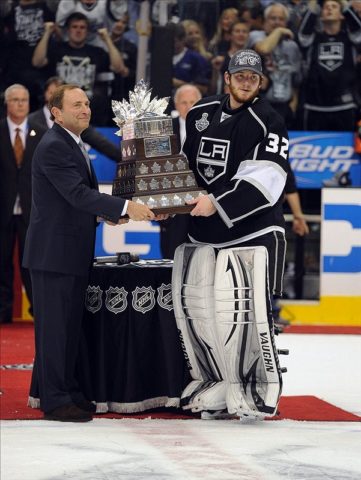
Quick hasn’t just been a strong playoff performer, he has had many great regular seasons. He has been nominated for the Vezina Trophy six times and finished in the top three twice. In the 2011-12 season, he posted career highs in SV% (.929), GAA (2.28), shutouts (10), and goals saved above average (GSAA) (28.08), which measures how many goals a goaltender allowed versus how many a league-average goalie would allow in the same amount of shots. Quick earned a fifth-place finish in Hart Trophy voting and a second-place finish in Vezina Trophy voting.
In the 2015-16 season, Quick finished third in Vezina Trophy voting after winning 40 of 68 games, and by posting a fantastic .918 SV%. Although he has never won the Vezina, he played an integral role in winning two William Jennings Trophies which is given to the team whose goalie tandem had the lowest GAA in the league.
Quick won the Jennings Trophy in 2013-14 and 2017-18; and was the sole recipient of the award in both seasons as the only Kings goalie who played in 25 or more games.
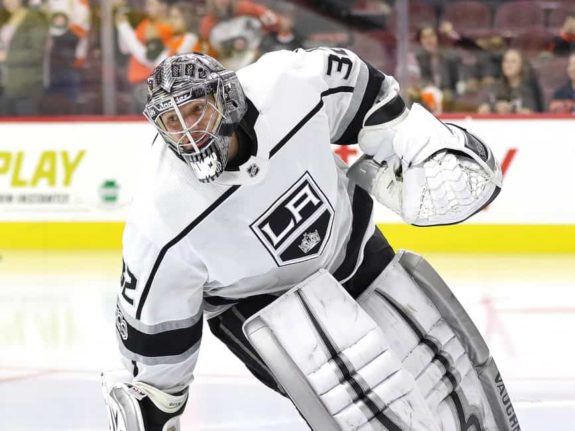
Quick has had a spectacular career and is the greatest goalie in Kings history. Yet, he has struggled heavily ever since his fantastic 2017-18 season where he won the Jennings Trophy. Now could be the time for the Kings to try someone new in net.
The Decline
Quick’s decline has been quick and ugly over the past two seasons. In the 2018-19 regular season, he posted an .888 SV%, a 3.38 GAA, and a -29.21 GSAA. His .888 SV% was 74th out of the 93 goalies who played last season; however, it was the worst SV% among goalies who played in over 25 games.
He improved in 2019-20, but it wasn’t a good season. He posted a .904 SV%, 2.79 GAA and a -6.32 GSAA. His .904 SV% was ranked 54th out of the 87 goalies who played this season. Among the 52 goalies who played in 25+ games, Quick’s SV% was the 11th worst. These numbers are especially bad considering the Kings gave up the fifth-fewest shots against per game. He had another below-average season, though not as atrocious as the one before.
His Age is a Concern
Quick’s age is a worrying sign. He’s 34 years old and turns 35 in January 2021. The 2020-21 season is rumoured to be starting in either December or January. According to Hockey-Graph’s model, a goalie’s play typically begins a noticeable decline at the age of 32 and “falls off a cliff” at the age of 35.
Over the past two seasons, Quick’s play has been similar to this model. The 2018-19 season was statistically the worst season of his career, and he was 32 years old at the start of the season. During the 2019-20 season, he posted a bit better numbers, but you could argue that was partially due to LA allowing the fifth fewest shots per game.
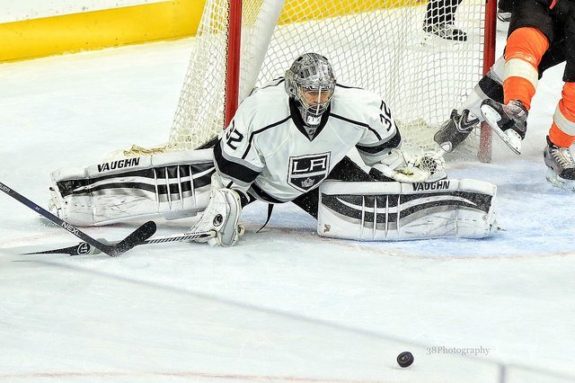
Quick’s play has been quite similar to this model. His noticeable decline started when he was 32. The model says a goalie’s play will “fall off a cliff” at the age of 35; if Quick’s play continues to replicate Hockey-Graph’s model, then the 2020-21 season could be his worst yet.
The Kings Have a Goalie Capable of an Increased Role
Cal Petersen is a promising young goalie. He is 25 years old, around the age when goalies start playing more games. He has been successful at the NHL level with a 10-7-1 record in the past two seasons. In 2018-19, he started 11 games and posted very good numbers with a .924 SV%, a 2.61 GAA, and a 5.00 GSAA.
Related: Best NHL Goalies of the 1980s
Last season, he again played well. In eight games, he had a 5-3-0 record. However, due to his small sample size, his GSAA is unavailable, however, his .922 SV% and 2.64 GAA were great.
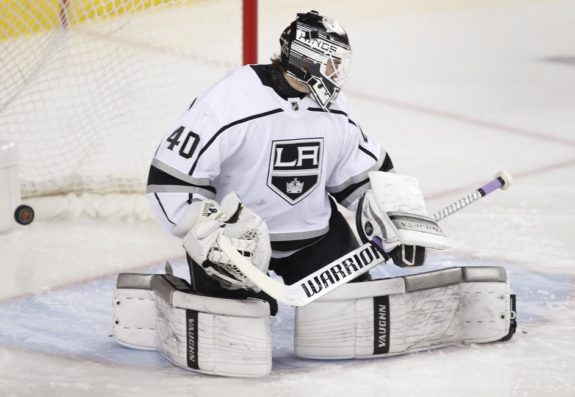
If given the chance, Petersen could become a good backup for Quick and help share his workload.
What Should Happen
The Kings had a bad season and aren’t expected to be a playoff team next season. With Quick’s struggles in the past two seasons, he should see a decreased role next year. He should still be the starter, but giving Petersen more starts would be smart as he has proven he can play at the NHL level. This would help Petersen’s development, as he is the Kings’ goalie of the future.
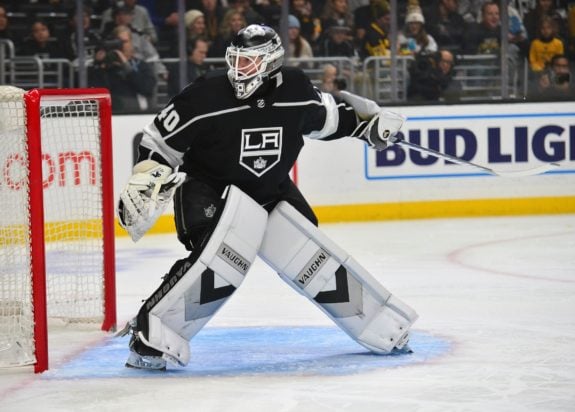
Petersen’s play has warranted him getting more playing time, and he should be capable of playing around 30 games. He will be 26 years old at the start of the 2020-21 season, which is a similar age to when some of the league’s other goalies got increased roles. Joonas Korpisalo and Elvis Merzlikins are both 26 years old and emerged as great goalies for the Columbus Blue Jackets this season. Linus Ullmark was 26 years old this season and proved himself to be a capable starter for the Buffalo Sabres.
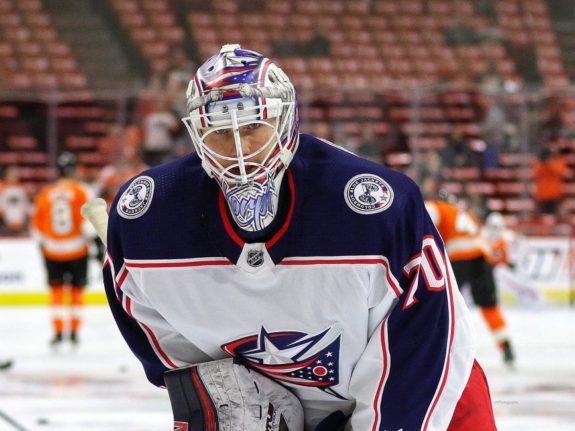
Giving Petersen more playing time would allow Quick to have an easier workload, a move that could help the latter play better than he has in the past couple of years. In the 2019-20 season, from December until the end of the season, Quick played in a reduced role, appearing in 24 out of the Kings’ 43 games. These 24 games were his best of the season, as he posted a .920 SV% in them.
Giving Quick a decreased role next season would be very beneficial to the Kings. This would also allow Petersen to get more NHL experience, as he’s the goalie of the Kings’ future. Giving Petersen more starts and Quick fewer would be a win-win scenario for the Kings.
Stats are per HockeyDB and Hockey Reference